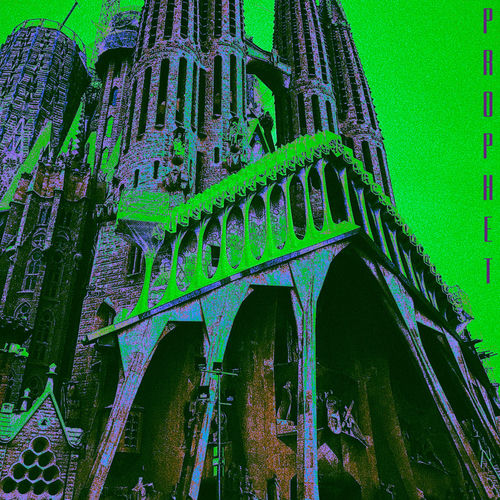The Bahá’í Faith, a religious movement that emerged in the mid-19th century, is founded on the teachings of its prophet, Bahá’u’lláh, whose life encapsulates the profound themes of exile, persecution, and the luminous promise of unity and peace. This article delves into the Bahá’í teachings, particularly focusing on Bahá’u’lláh’s banishment from his native land, shedding light on the intricate nuances that define his legacy while examining the implications of such exile on the Bahá’í community and the wider world.
To comprehend the significance of Bahá’u’lláh’s banishment, it is imperative to contextualize the sociopolitical climate of Persia in the 19th century. During this period, a surge of unrest characterized the region, with clashes between traditionalism and modernization precipitating profound societal upheaval. Against this backdrop, a new religious ideology emerged, advocating for equity, justice, and global harmony. This ideology was personified in Bahá’u’lláh, whose teachings espouse the oneness of humanity and the foundational principle of universal peace.
Bahá’u’lláh’s spiritual journey commenced with the Báb, a forerunner who delineated the advent of a new prophetic figure. Bahá’u’lláh’s association with the Báb attracted the ire of the ruling authorities, culminating in his arrest and subsequent exile. The initial exile to Baghdad marked a crucial turning point in his life, as it enabled him to articulate his revelations more profoundly, laying a foundation that would resonate across continents. His subsequent banishments, from Baghdad to Constantinople and eventually to Adrianople, underscore a trajectory filled with trials, yet one that served to amplify his message internationally.
Central to Bahá’í teachings is the concept of divine revelation, which asserts that God has periodically sent prophets or Manifestations to guide humanity. Bahá’u’lláh posited that he is one of these Manifestations, bringing forth an updated understanding of God’s will appropriate for contemporary society. His doctrine emphasizes the importance of recognizing the unity of all religious teachings, insisting that each prophet, from Moses to Muhammad, has contributed to the same divine purpose. This pivotal idea dismantles the concept of religious exclusivity, advocating instead for a universal embrace of all faiths.
A key theme in Bahá’í teachings revolves around the principle of unity within diversity. Bahá’u’lláh’s writings urge individuals to transcend the limitations of ethnic, racial, and religious divisions. This paradigm shift stems, in part, from Bahá’u’lláh’s firsthand experiences with exile and the multifaceted nature of human society. The pain of separation and loss draws forth a prophetic call to foster a global community where equitable relationships flourish. The stark contrast between the turmoil of the past and the envisioned harmony of the future is a cornerstone of the Bahá’í narrative.
The implications of Bahá’u’lláh’s teachings extend beyond theoretical discourse; they provide a framework for social and moral transformation. One notable teaching is the empowerment of women as a cornerstone for achieving global progress. Bahá’u’lláh asserts that both men and women are equal in the sight of God, and that the advancement of society is contingent upon the empowerment of all individuals, irrespective of gender. The historical context surrounding Bahá’u’lláh’s banishment—marked by the patriarchal norms of the 19th-century Persian society—accentuates the revolutionary nature of this teaching, promoting gender equality as a pivotal element of social justice.
Moreover, Bahá’í teachings encompass a fervent advocacy for education. Recognizing its transformative potential, Bahá’u’lláh championed the pursuit of knowledge as both a personal and collective responsibility. He elucidated that education is not merely an instrument for individual advancement but a means to engender societal progress. In light of Bahá’u’lláh’s own experience of exile, where access to education was often restricted, his emphasis on the necessity of a well-informed populace highlights the pervasive impact of enlightenment on societal structures.
The confrontation with adversity, particularly through the prism of Bahá’u’lláh’s banishment, presents a compelling narrative on resilience and transformation. His response to suffering transformed spiritual adversity into a platform for disseminating messages of hope and renewal. This reflects the broader Bahá’í view that trials can serve as catalysts for personal and communal development. The process of refining one’s character through challenges is integral to the spiritual journey endorsed by the Bahá’í Faith.
In conclusion, the teachings of the Bahá’í Faith, encapsulated within the life and legacy of Bahá’u’lláh, extend profound insights into the nature of exile and the path toward unity. His banishment from his native land symbolizes not merely a personal suffering but an integral aspect of a larger divine strategy aimed at fostering global cohesion. The teachings advocate for the interconnection of humanity, embracing diversity while recognizing a shared spiritual destiny. Thus, through an understanding of Bahá’u’lláh’s journey and the principles he espoused, we find an invitation to engage in the ongoing dialogue of unity, inclusivity, and the moral imperatives that underlie the human experience.
